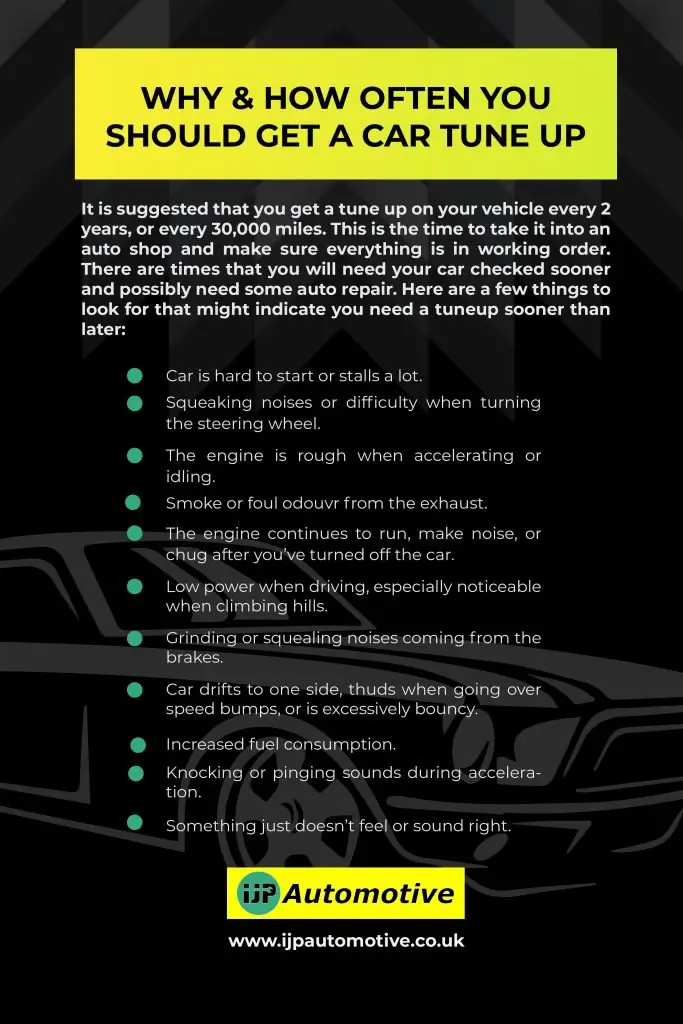Doing inspection and tune-ups varies from one vehicle to another. For older cars with non-electronic ignitions, they need to be tuned every 10,000 to 12,000 miles or every year, whichever comes first. As for newer car models with electronic ignition and fuel injection systems, they are regularly scheduled to be tuned from 25,000 miles to as many as 100,000 miles even without needing a major tune-up.
While it’s true that many vehicles might not need go for a servicing care, as a responsible car owner, you still need to be on the look-out for some potential warnings. With the right car care involving tune-up, you can definitely save thousands of bucks in the long run.

FAQs
If the check engine light on your vehicle’s dashboard illuminates, it is an indication that the engine management system has detected a potential issue. If your vehicle’s engine runs unevenly or produces vibrations while idling, it may be a sign that some components need attention. A noticeable decrease in fuel efficiency, where you’re getting fewer miles per gallon than usual, can be a sign that your vehicle’s engine or fuel system is not functioning optimally. If you’re experiencing reduced engine power or a noticeable lag in acceleration, it could indicate problems with components like spark plugs, ignition coils, air filters, or fuel injectors. Difficulty starting the engine or frequent stalling can indicate problems with the ignition system or a malfunctioning fuel system. If you notice engine misfires, hesitation, or rough running while driving, it may be a sign that the ignition system or fuel system needs attention. If you have reached the mileage or time interval specified for a tune-up in your vehicle’s owner manual, it’s a good idea to schedule one to ensure all necessary maintenance tasks are performed.
It is recommended to follow the manufacturer’s recommended maintenance schedule outlined in your vehicle’s owner manual. This will provide the most accurate and specific guidance on tune-up frequency for your particular vehicle. Additionally, being attentive to signs of potential issues and addressing them promptly can help maintain the performance and longevity of your vehicle. Consulting with a qualified mechanic or technician can also provide valuable insights based on the specific needs of your vehicle.
While the concept of a traditional tune-up has evolved, regular maintenance is still necessary to keep your vehicle in good condition, optimize performance, and ensure reliability.
Neglecting to get regular tune-ups and maintenance for your vehicle can lead to decreased performance, increased risk of breakdowns, reduced reliability, safety concerns, expensive repairs, potential warranty issues, and decreased resale value. Performing regular maintenance tasks, including tune-ups, is crucial for maintaining the optimal functioning, safety, and value of your vehicle.


